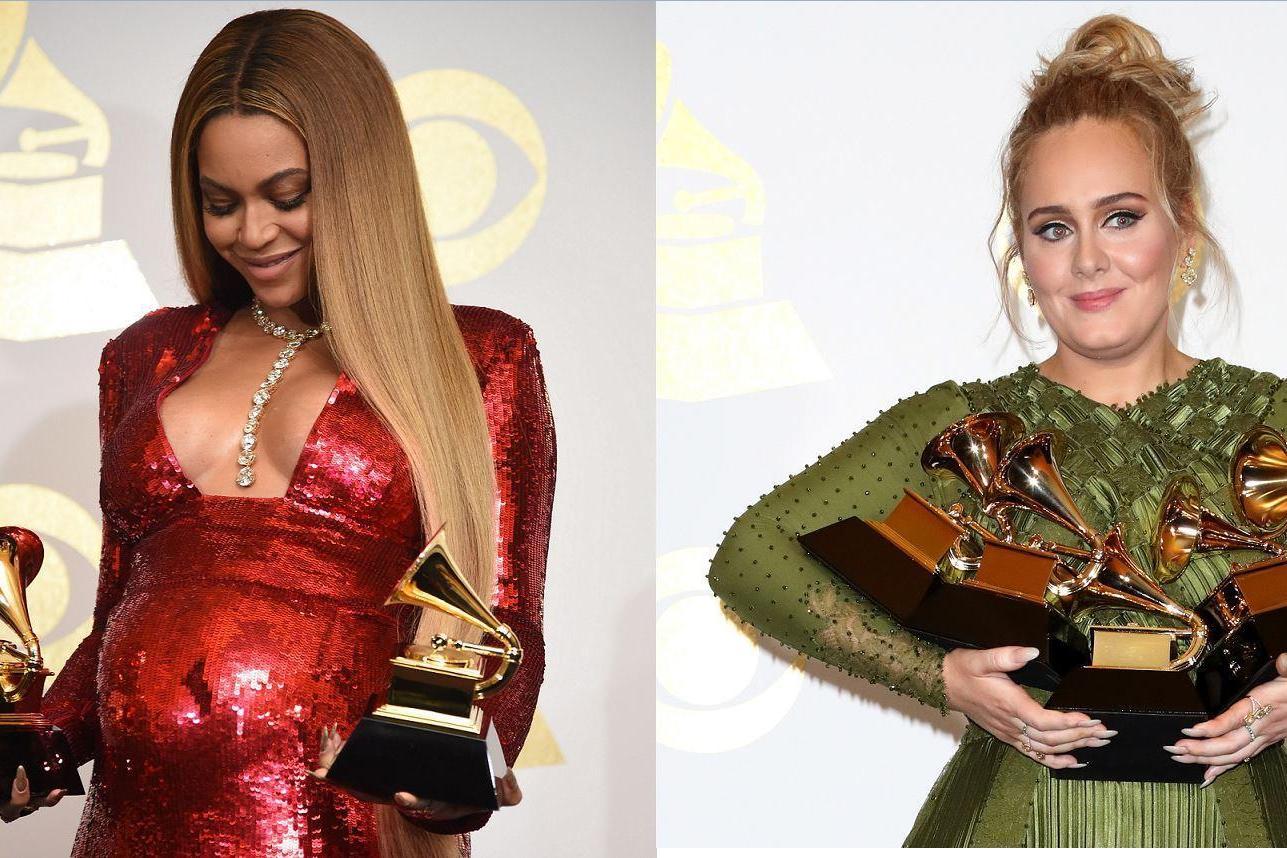Beyonce's Lemonade didn't win that Grammy because it wasn't made for everyone – and Adele knows that
Lemonade’s importance lies not in its speaking for everyone, but in its speaking for, shouting for, dancing for, cursing for certain women who have not only been let down by institutions of politics and institutions of music production, but also by mainstream feminism itself


Your support helps us to tell the story
From reproductive rights to climate change to Big Tech, The Independent is on the ground when the story is developing. Whether it's investigating the financials of Elon Musk's pro-Trump PAC or producing our latest documentary, 'The A Word', which shines a light on the American women fighting for reproductive rights, we know how important it is to parse out the facts from the messaging.
At such a critical moment in US history, we need reporters on the ground. Your donation allows us to keep sending journalists to speak to both sides of the story.
The Independent is trusted by Americans across the entire political spectrum. And unlike many other quality news outlets, we choose not to lock Americans out of our reporting and analysis with paywalls. We believe quality journalism should be available to everyone, paid for by those who can afford it.
Your support makes all the difference.Adele made one of the most important statements of the Grammys this year by saying, with characteristic awareness and humility, that the Grammy she won for best album rightfully belonged to Beyoncé.
Now, I was never really a Beyoncé enthusiast. Obviously, I wouldn’t miss the opportunity to shout, “I buy my own diamonds and I buy my own rings!” back in early 2000s, when my net worth, as a child of about five, was roughly £3.50.
When ‘Single Ladies’ came out, I knew the dance moves as well as any self-respecting person would, and enjoyed performing them whenever I saw a couple engaging in public displays of affection. But on a whole, I was always a little too busy pretending that I was the addressee of every lustful Bob Dylan song to give Beyoncé much of my critical attention.
But when Lemonade came out in 2016, it was no longer possible for Beyoncé to escape my interest. As much as I might have liked to stick to folk music, ‘Hold Up’ would creep into my every stride when walking down the street; ‘Daddy Lessons’ would reverberate in my head so often that I would find myself randomly pointing finger-guns at inopportune moments; ‘Sandcastles’ would have me on my knees, weeping through identification with a pain that I had never actually felt. As an atheist, I can happily – and potentially insensitively – describe listening to Lemonade as a near-religious experience.
But am I surprised that it didn’t win that Grammy? No. Because the whole point of Lemonade is that it wasn’t written for everyone.
This, in and of itself, is a pioneering and brave move – but it does mean that an album is unlikely to unite a room. As a non-white woman, I could hold Lemonade close to my heart, but I was still aware that it could never mean to me exactly what it would mean to a black American woman. I was aware, when listening to the album, that it wasn’t exactly “for me”, and that that was the very reason it was so important.
The album seemingly managed to reverse privilege, and those who were used to having everything for themselves were intentionally sidelined by this monumental piece, as it prioritised the looks and voices that western culture has gone to such lengths to marginalise or appropriate. Adele was therefore right to risk articulating the difference between what the album had meant to her and what it had meant to her black friends.
I can wax lyrical about the album all I like, but the central point is this: Lemonade’s importance lies not in its speaking for everyone, but in its speaking for, shouting for, dancing for, cursing for certain women who have not only been let down by institutions of politics and institutions of music production, but also by mainstream feminism itself.
And it’s certainly a win for all women that Adele was able to show an awareness of the vast social and musical significance of Lemonade even if the judges of the Grammys were blinded to it. Because the specific importance of the album does not preclude non-black women and men enjoying it, appreciating it, respecting it and (as should have been done) rewarding it. As Adele showed us, that’s what being an ally involves.
And Beyoncé could show us, in the teary smiles which she gave Adele, that for her the battle is more complicated than a Grammy win. Her fight did not end with the production of Lemonade – nor was it lost along with that Grammy.
Join our commenting forum
Join thought-provoking conversations, follow other Independent readers and see their replies
Comments